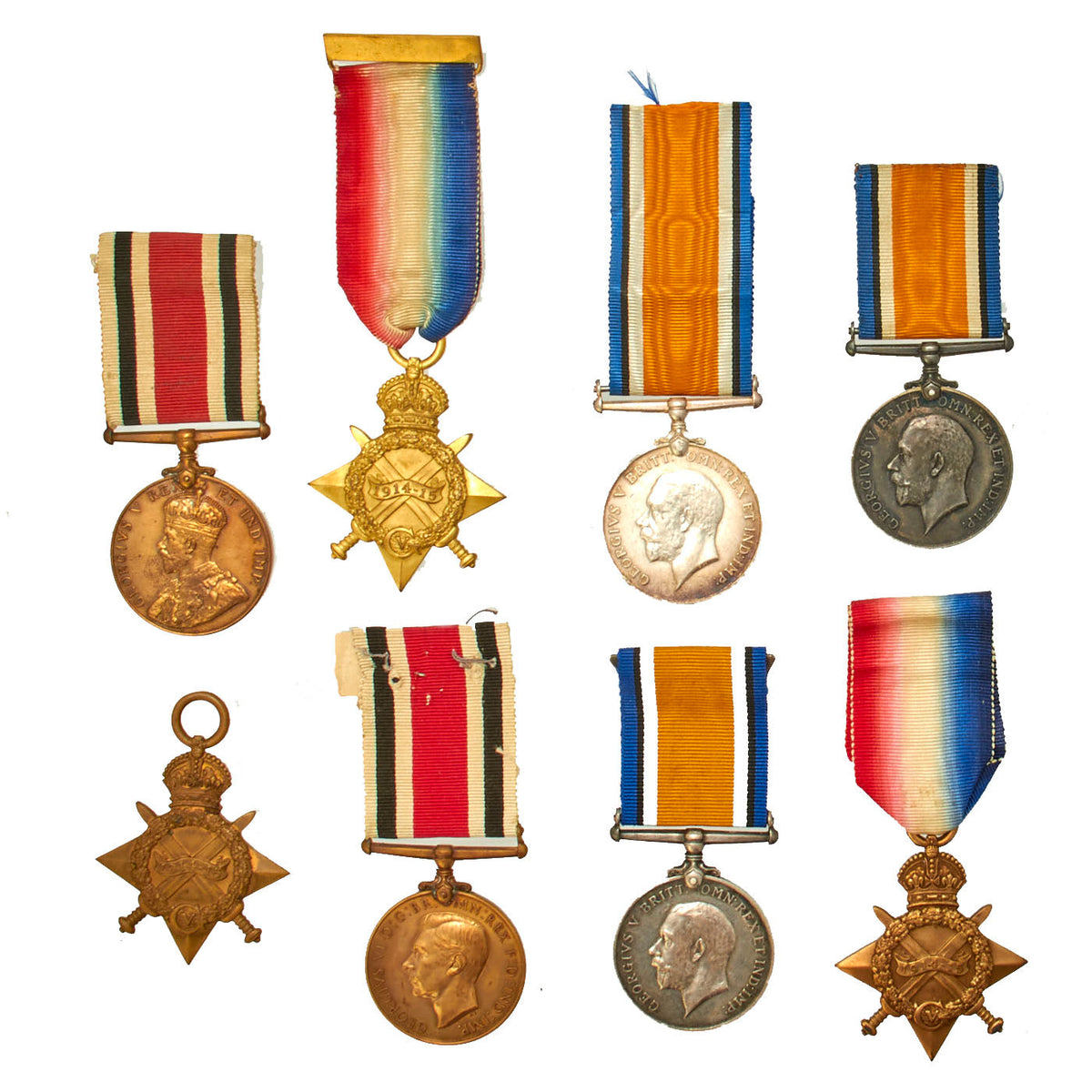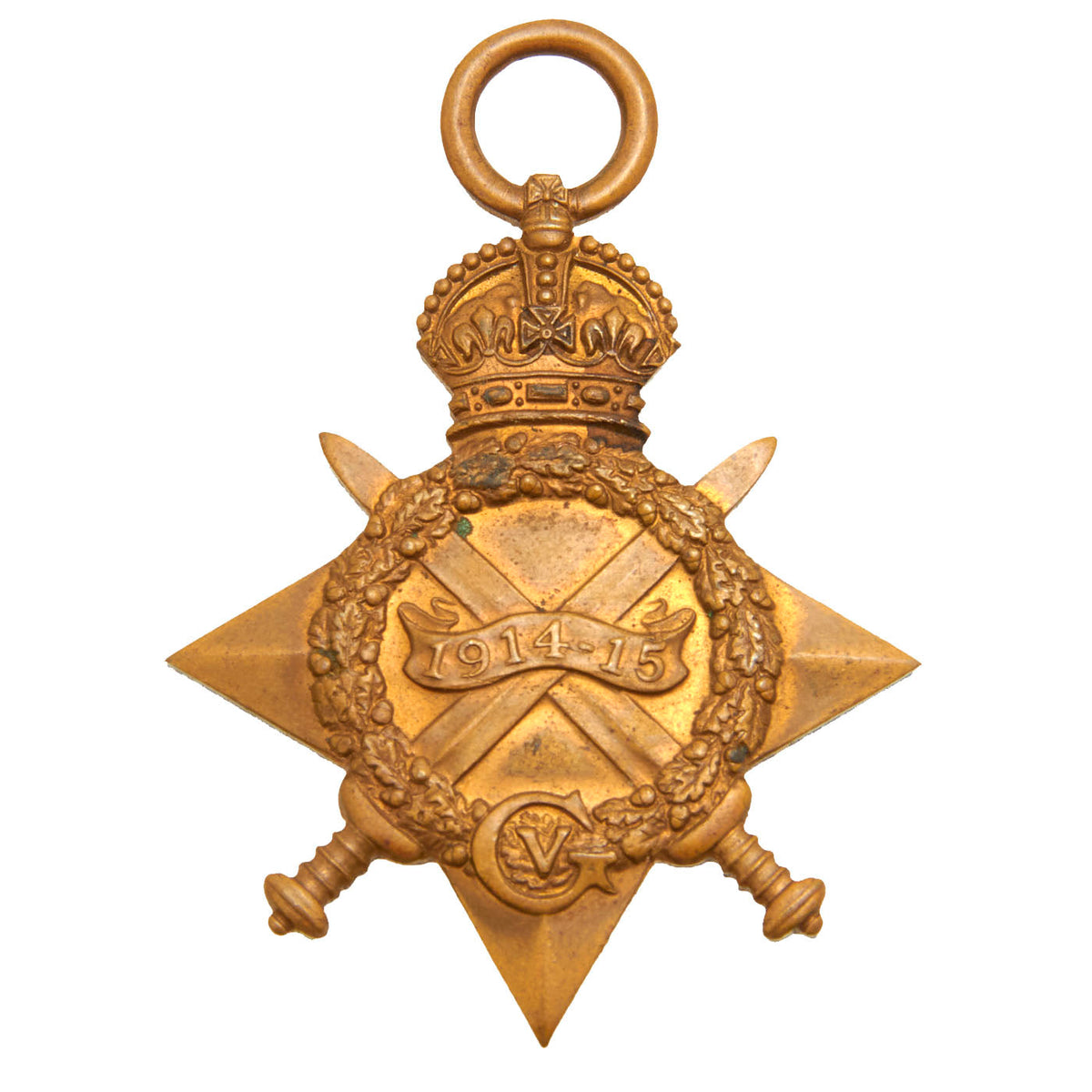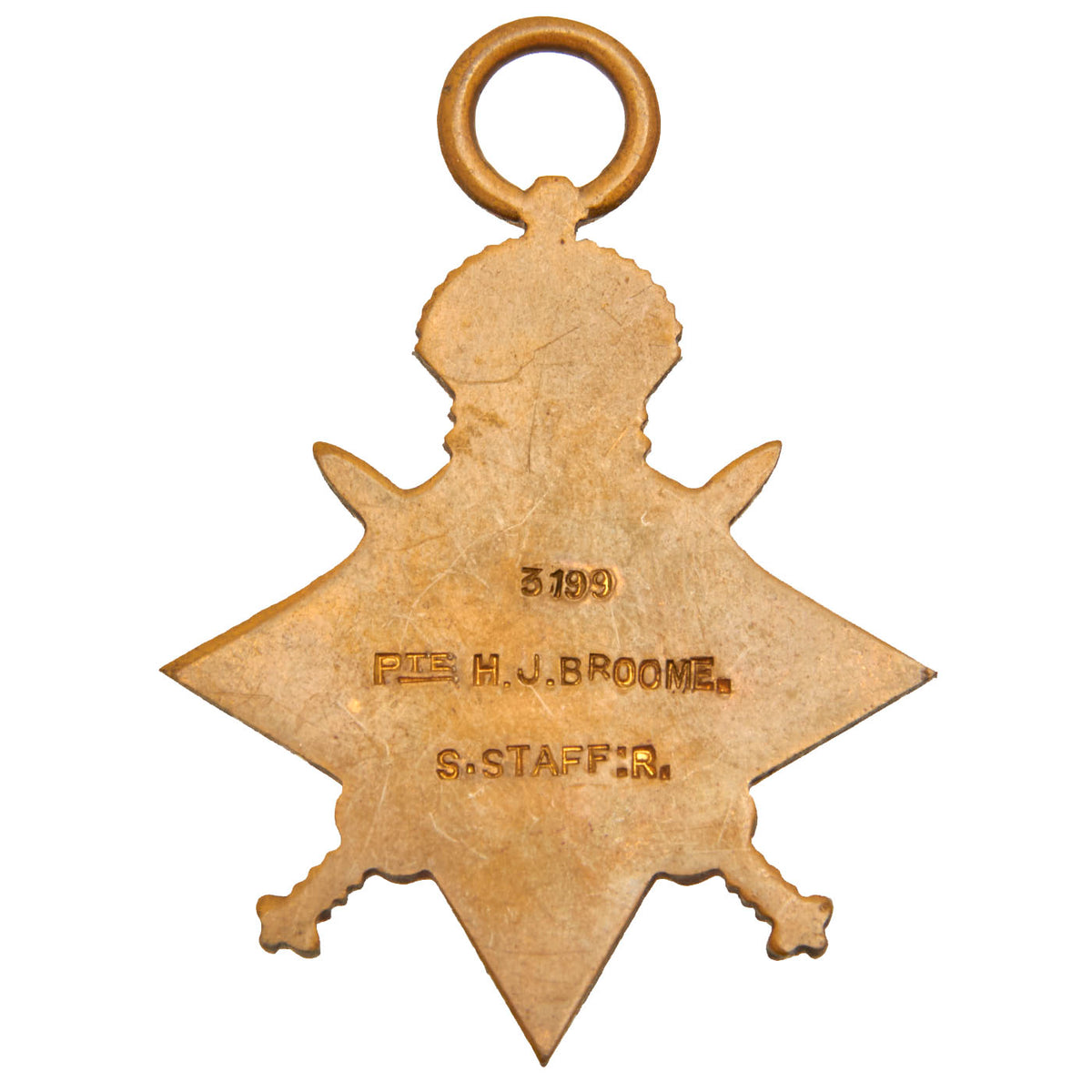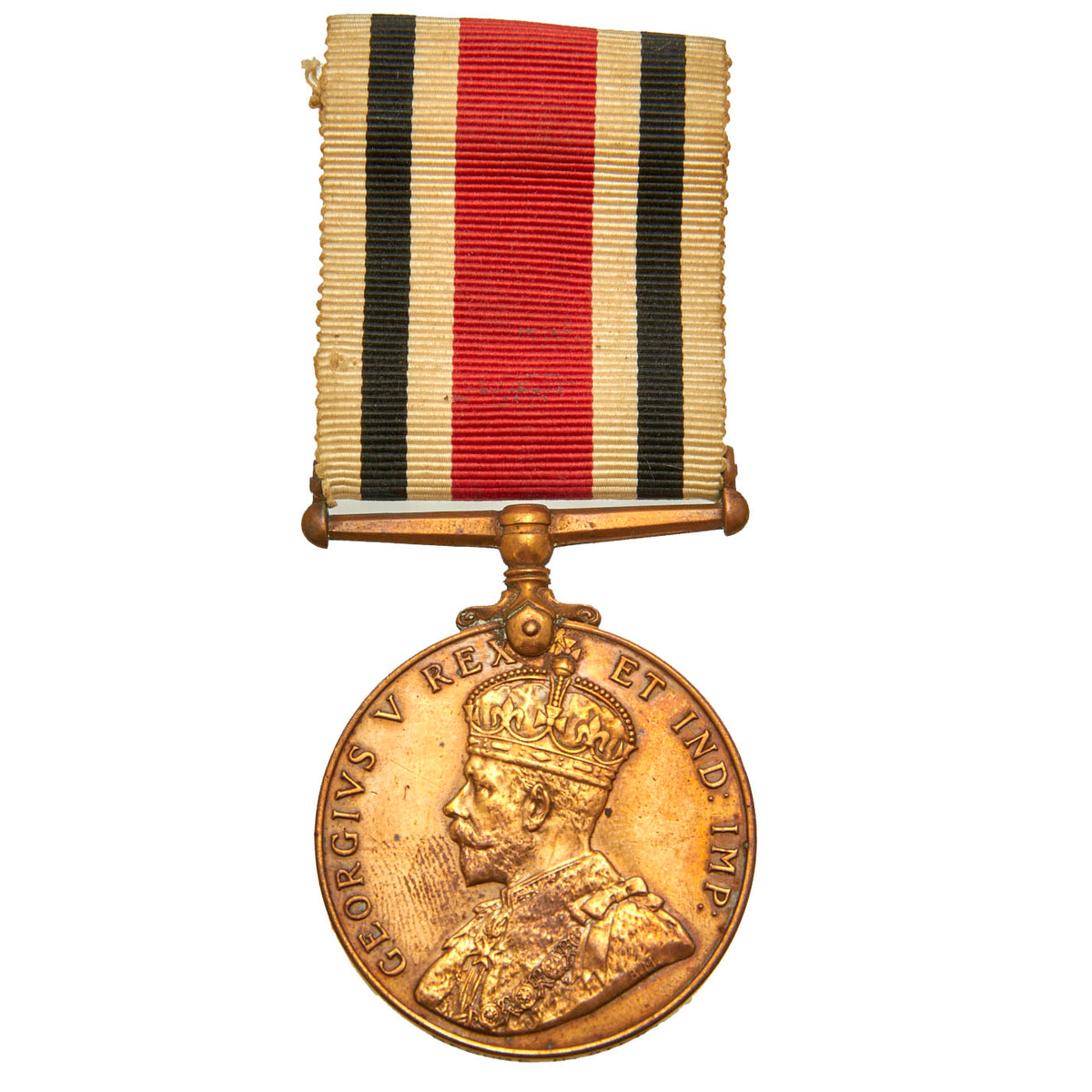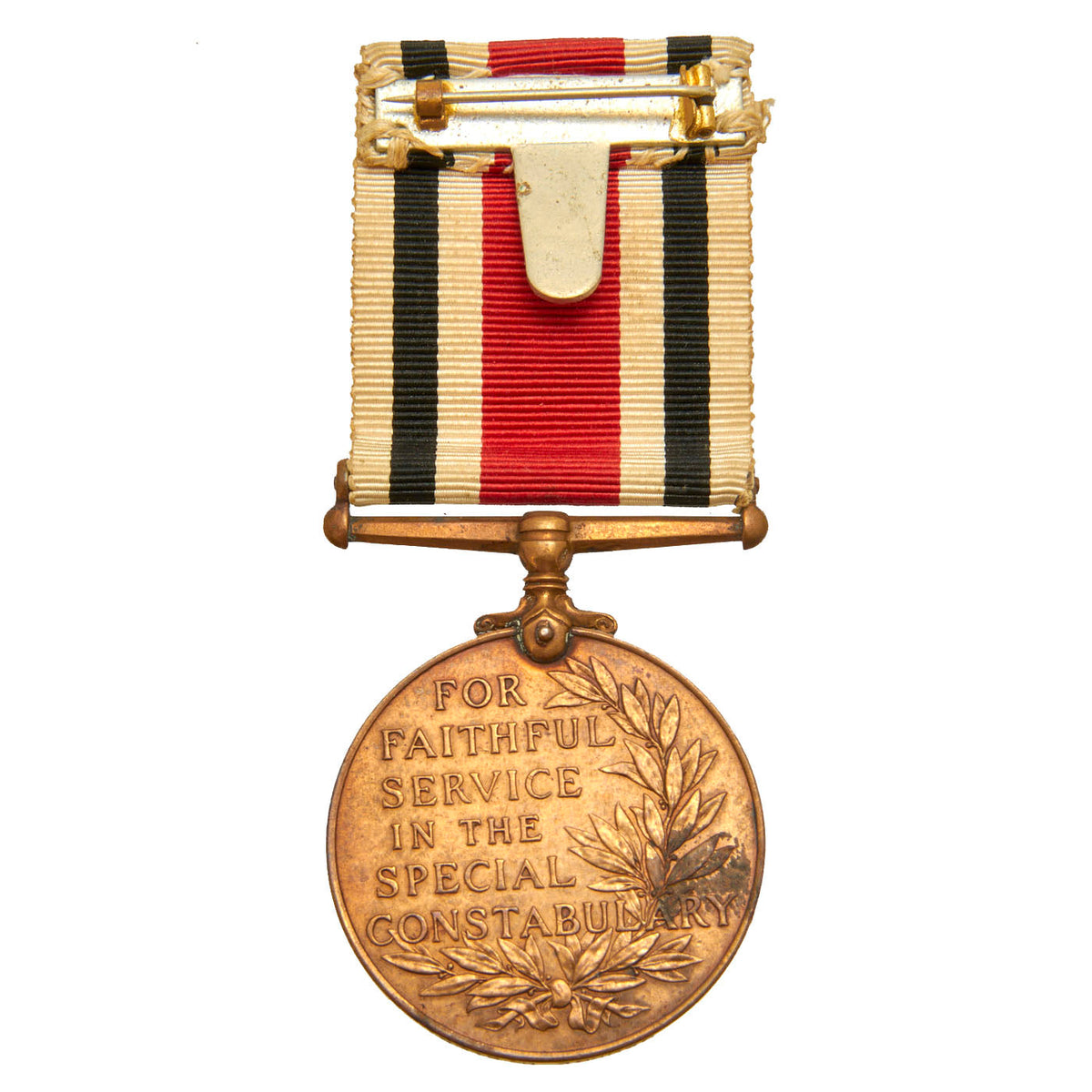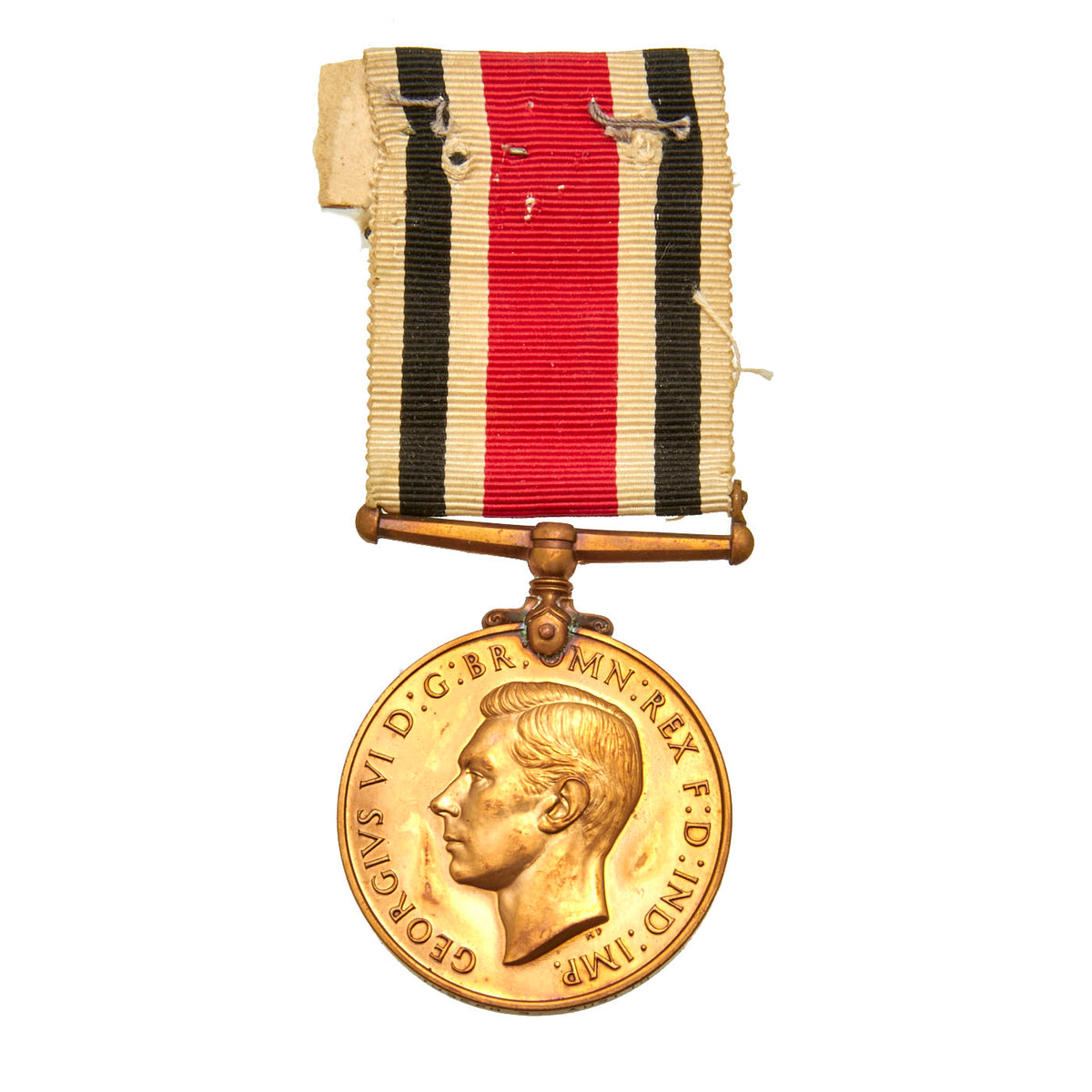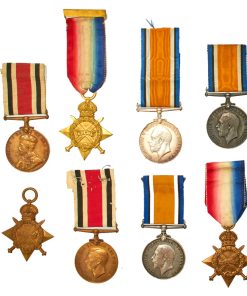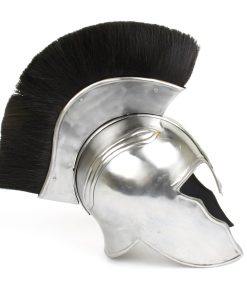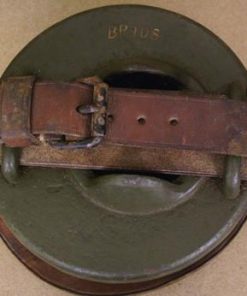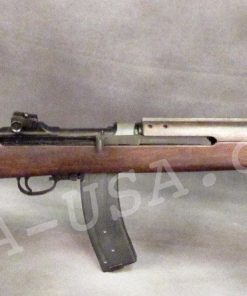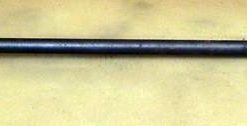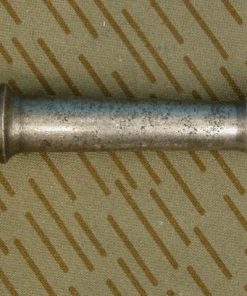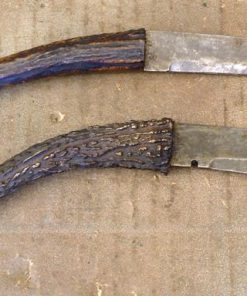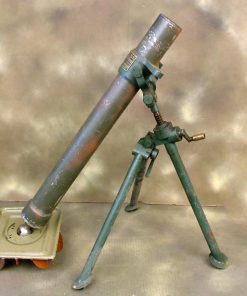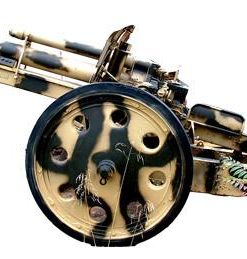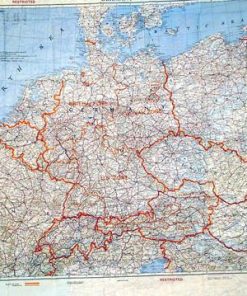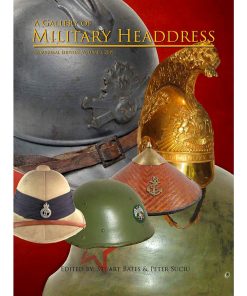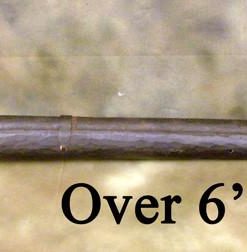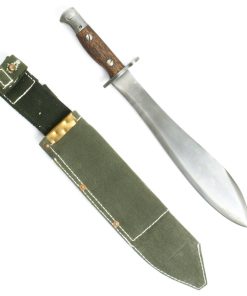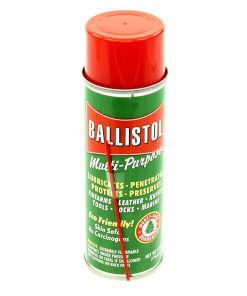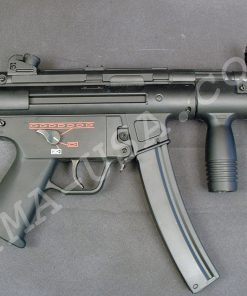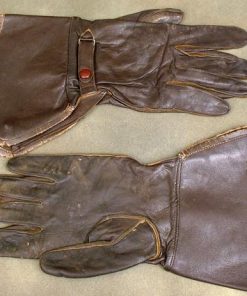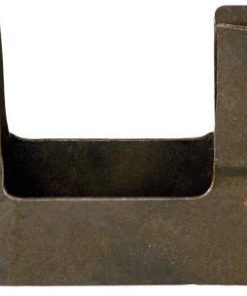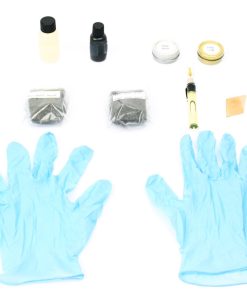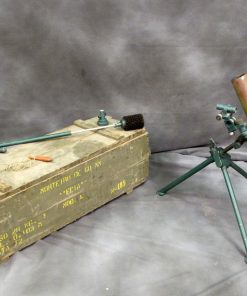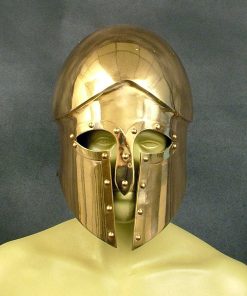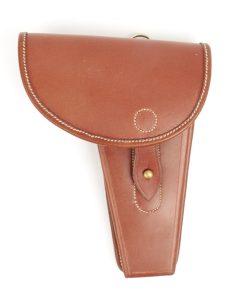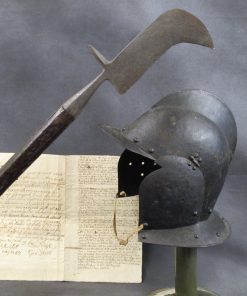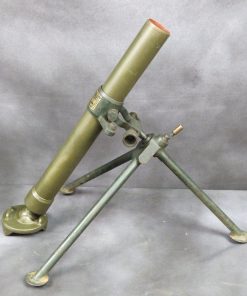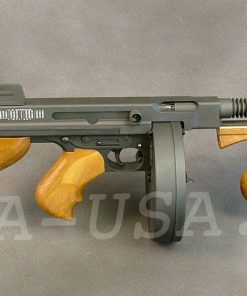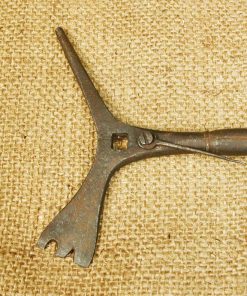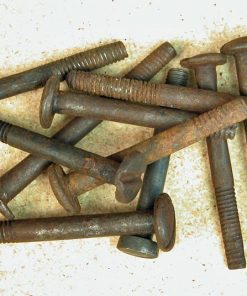Original British WWI & WWII Named and Numbered Medal Lot – Set of 8 Original Items
$ 395,00 $ 118,50
Original Items: Only One Group of 8 Available. Now this is a rare opportunity! There are 8 genuine British Military and Constabulary medals, all of which happen to be engraved and numbered!
During the 17th and 18th centuries the service of the ordinary British soldier was simply rewarded with a state pension. During this time, due to the suffering and actions of the soldiers on both sides during the English civil war, public opinion of soldiers was quite low. Usually, only the most desperate volunteered for military service and in some cases it was the only alternative to a prison sentence. Public opinion of the British Army slowly began to change after the Napoleonic Wars (1799 to 1815) due to the heroic actions of soldiers and their officers. However, during this time, medals were only given to highly promoted officers and members of the aristocracy for their services.
The first British Army medal awarded to ordinary soldiers was the Waterloo Medal, issued around 1816-17. This was given to every individual British soldier who could prove that they were present during the campaign against Napoleon in which the British Army, alongside their Dutch and German allies, suffered horrific loss and suffering whilst performing feats of heroism. The medal was unique as not only was it the first of its kind but each soldier or officer who received it had their name stamped into the medal, recognising them individually. Around 39,000 of these medals were issued to the men who applied for them. The material chosen for the medal was Silver, which alongside Bronze, would be used widely for many medals in the coming century.
The Medals Included In This Lot:
– 3x 1914–15 Stars: The 1914–15 Star is a campaign medal of the British Empire which was awarded to officers and men of British and Imperial forces who served in any theater of the First World War against the Central European Powers during 1914 and 1915. The medal was never awarded by itself and recipients also received the British War Medal and Victory Medal.
1- Second Lieutenant P.H. Hudson of the Royal Fusiliers.
2- Private G. Creed of the Royal Fusiliers (STK-1321)
3- Private H.J. Broome of the South Staffordshire Regiment (3199)
– 3 x British War Medals: The British War Medal is a campaign medal of the United Kingdom which was awarded to officers and men of British and Imperial forces for service in the First World War. Two versions of the medal were produced. About 6.5 million were struck in silver and 110,000 in bronze, the latter awarded to, among others, the Chinese, Maltese and Indian Labor Corps.
1- Temporary Second Lieutenant J. Mackie: James Mackie was educated at Glasgow St Georges Road school, Glasgow High School and the University of Glasgow, whence in December 1914, having joined the Officer Training Corps in October, he applied for a temporary commission in the regular army for the duration of the war which had been declared in August 1914. On his application form he asked to join any infantry regiment “preferably Scottish (and kilted)”.The London Gazette of 15 October 1915 announced certain temporary Second Lieutenants, James Mackie being one. The war diary notes on 3 December 1916, at Ambrines, that ‘The following Honors and Award are bestowed for services in October for operations on the Somme’ – Lt. J. Mackie is one of five officers awarded the Military Cross. The Supplement to The Edinburgh Gazette of 12 January 1917 cites Mackie’s award:
Temp. Lt. James Mackie, Arg. & Suth’d Highrs.
For conspicuous gallantry in action. He assumed command of and handled his company with great courage and initiative, making excellent dispositions for defense and assisting to repel a strong enemy counterattack.
Mackie is next mentioned in the war diary on 9 April 1917 at the battle of Arras:
Zero hour had been 5:30a.m. and at 7:20 a.m. – Message received from B Coy that Lt. Mackie was wounded and that he [the message sender] was taking command and moving in support of BLACK WATCH.
Mackie was wounded, in the right lumbar region, at St Laurent Blangy, near Arras, on Easter Monday (9 April) 1917. He left his unit on 9 April, and via 24 General Hospital and hospital ship ‘Brighton’, arrived at Dover from Calais on 11 April 1917. On 12 April he was operated on at Fishmongers’ Hall Hospital, London Bridge. On 10 December 1917 he wrote to The War Office from Lochiel Auxiliary Hospital, Banavie, Fort William, appealing against the decision to refuse his application for a wound gratuity, for which he had applied on 18 June whilst still in Fishmongers’ Hall
Hospital in London:
Permit me to mention the following facts which surely justify my claim that my wound was of a very severe nature. I was hit on the right lumbar region by a piece of shell casing on 9th April of this year. I was operated on at Fishmongers’ Hall Hospital, on 12th April, when the casing fragment, a piece of my kilt, and part of the crest of the ilium were extracted. I was operated on again in May, when more of the ilium had to be taken, and in June there was a third operation to clear away some further foreign matters. As a result of the wound and the three operations there is a four inch scar on my right stomach, and a great valley on my back almost from the spine to my right side. For four months I was absolutely confined to bed, for the following two I could walk only with the aid of a stick, and for the last two months I have been walking about fairly freely. The wound is at present slightly open, and discharges a little. My weight before the 9th April was just on 10 stones, but when I was weighed on getting out of bed in August I was only 7 stones. In October I weighed 8 stones 1lb, and at present weigh just over eight stones and a half. I understand that my last Medical Board did not anticipate my being fit for general service for quite some time. I may mention that preliminary to be [sic] wounded, I have never had a day’s illness all my life with the exception of a month last year when I was down with P.U.O.
It is not known whether Mackie returned to the war front on his recovery.
The Other Two War Medals:
2- Private A.H. Whale (2988) of the Cambridgeshire Regiment
3- Private E.T. Kent (760816) of the 75th Canadian Infantry Battalion
– 2x Special Constabulary Long Service Medals (WWI & WWII Issue): The Special Constabulary Long Service Medal is a long service medal awarded in the United Kingdom to members of the Special Constabulary who have completed a specified period of service. Established in 1919 by King George V, the medal was initially created to reward members of the Special Constabulary for their service during World War I.
The medal may be awarded to Special Constables who are recommended by the Chief Officer of Police of the department in which they serve so long as they have served for at least nine years, and willingly and competently discharged their duty as a Special Constable. Years of service during World War I from 1914 to 1918 and service during World War II from 3 September 1939 to 31 December 1945 are counted as triple.
Names/Engraving On The Medals:
1-WW1 Era Special Constable Medal: George H. Silk
2- WW2 Era Special Constable Medal: Joseph S. Austin
This is an incredible lot of medals just waiting to be researched! You do not want to miss the opportunity to add these 8 British Military medals to your collections! Comes ready to display.
Fast Shipping with Professional Packaging
Thanks to our longstanding association with UPS FedEx DHL, and other major international carriers, we are able to provide a range of shipping options. Our warehouse staff is expertly trained and will wrap your products according to our exact and precise specifications. Prior to shipping, your goods will be thoroughly examined and securely secured. We ship to thousands clients each day across multiple countries. This shows how we're dedicated to be the largest retailer on the internet. Warehouses and distribution centres can be located throughout Europe as well as the USA.
Note: Orders with more than one item will be assigned a processing date depending on the item.
Before shipping before shipping, we'll conduct a thorough inspection of the items you have ordered. Today, the majority of orders will be delivered within 48 hours. The delivery time will be between 3-7 days.
Returns
The stock is dynamic and we cannot completely manage it because multiple stakeholders are involved, including our factory and warehouse. So the actual stock may alter at any time. It's possible that you may not receive your order once the order has been made.
Our policy is valid for a period of 30 days. If you don't receive the product within 30 days, we are not able to issue a refund or an exchange.
You can only return an item if it is unused and in the same state as the day you received it. You must have the item in its original packaging.
Related products
Uncategorized
Uncategorized
Uncategorized
Uncategorized
Uncategorized
Uncategorized
Uncategorized
Band of Brothers ORIGINAL GERMAN WWII Le. F.H. 18 10.5cm ARTILLERY PIECE Original Items
Uncategorized
Uncategorized
Uncategorized
Uncategorized
Uncategorized
Armored Burgonet Helmet & Polearm from Scottish Castle Leith Hall Circa 1700 Original Items
Uncategorized
Australian WWII Owen MK1 Machine Carbine SMG Custom Fabricated Replica with Sling Original Items
Uncategorized
